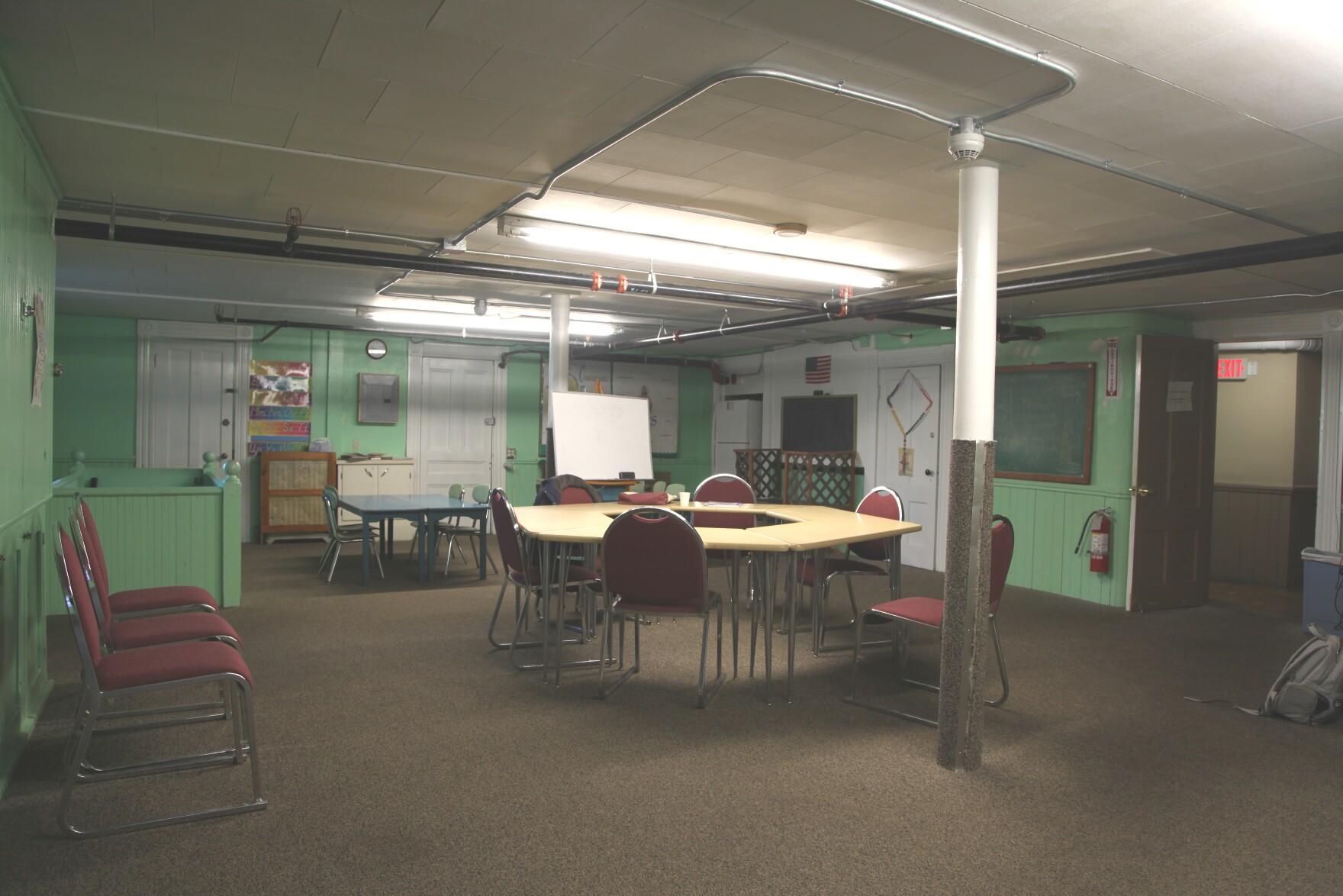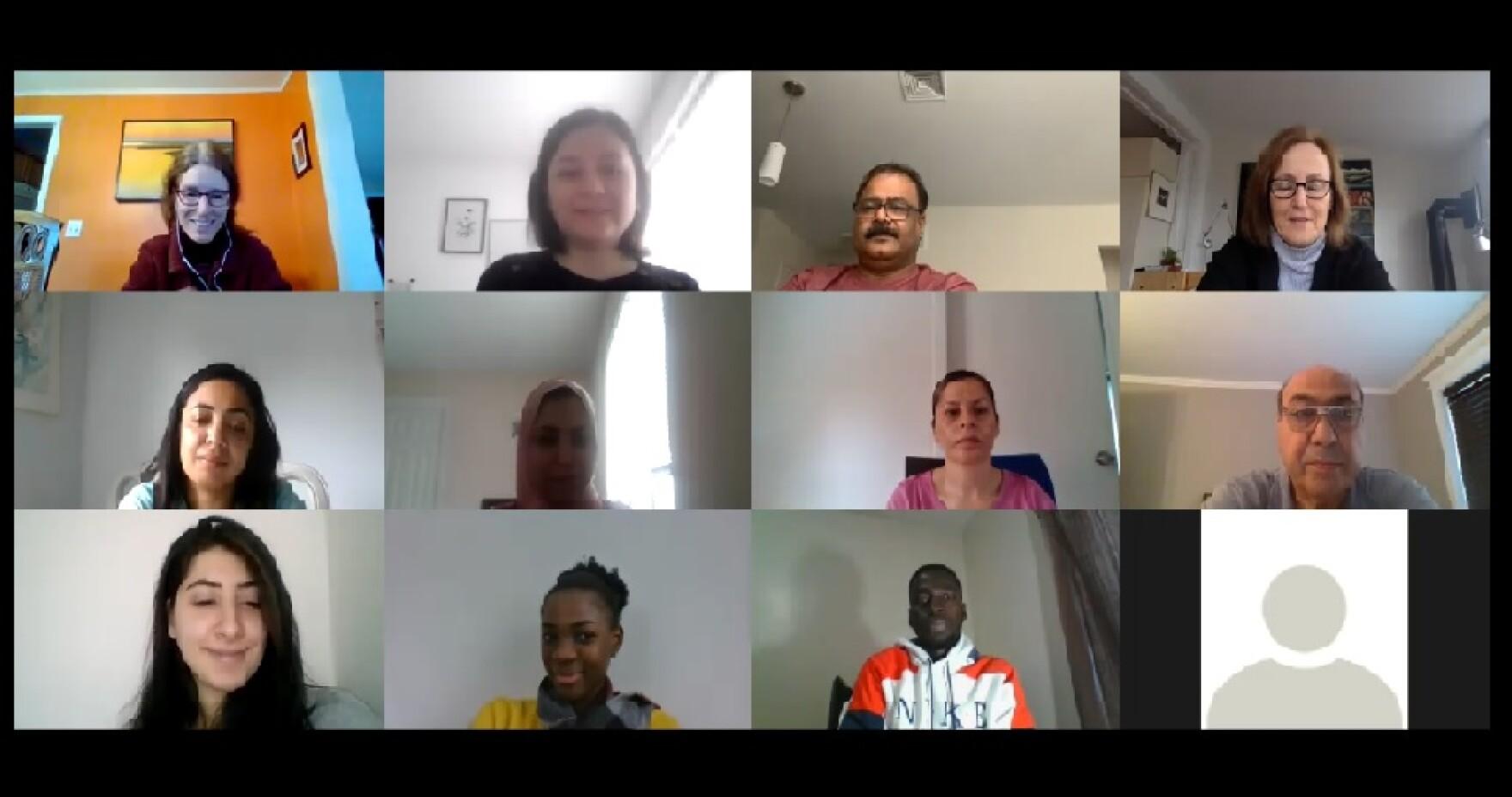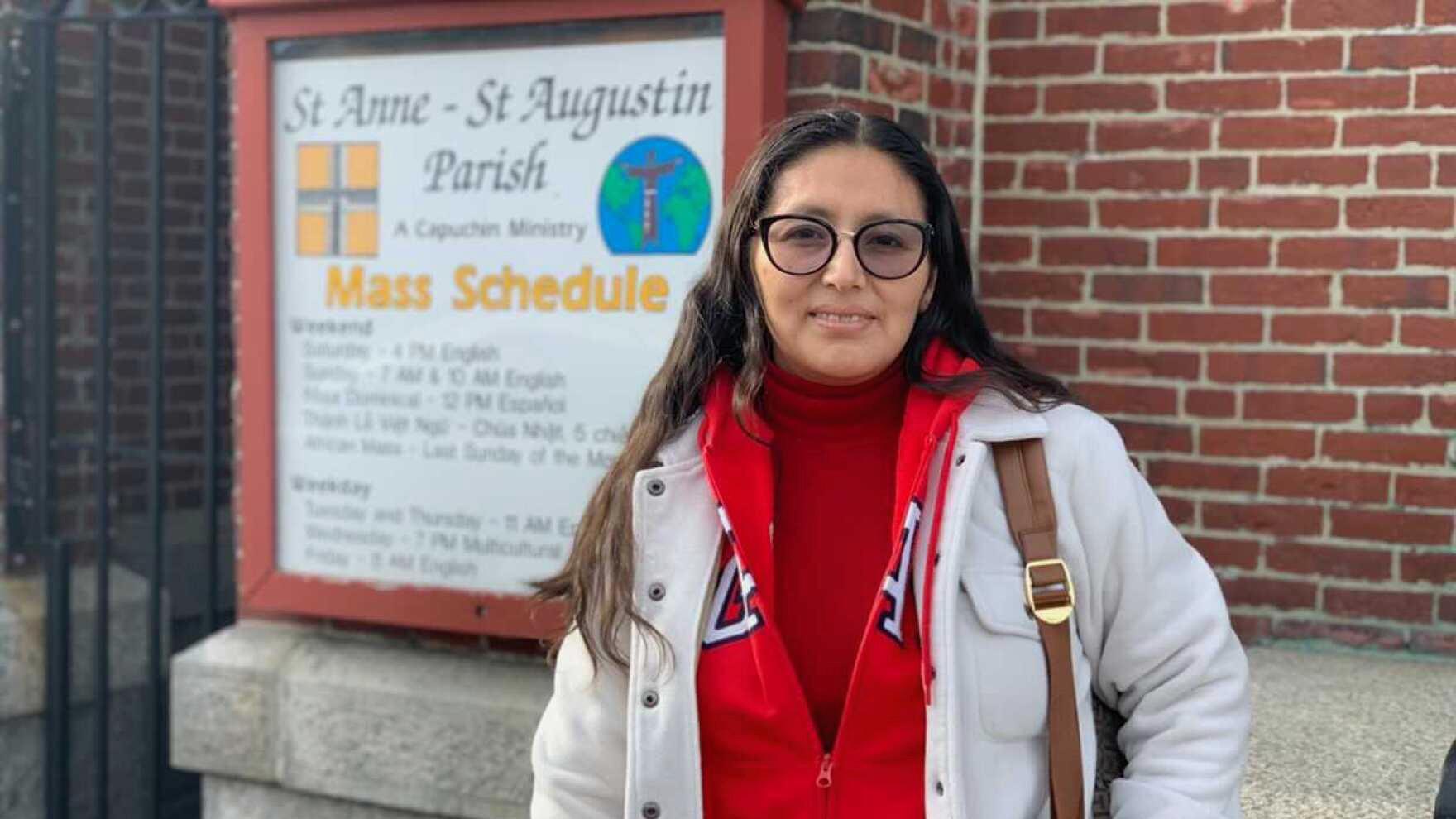‘Help wanted’: Immigrants find opportunities to learn English, get jobs amid labor shortage in New Hampshire
Gissela Yanez in her first day of English classes at St. Anne-St. Augustin Parish in Manchester, New Hampshire.
When Gissela Yanez arrived in New Hampshire from Peru in 2020, then six months pregnant, she found a job right away cleaning houses.
Yanez was grateful for the work, but as a college-educated, physical therapist in Peru, she also yearned to continue her career in the US.
“It would be a dream to have an office where I can heal everybody,” said Yanez, who lives in Manchester.
For Yanez and other immigrants in similar situations, that’s no easy task; it means revalidating their diplomas — which can be cost-prohibitive — and, learning English.
Related: Multilingual liaisons are ‘cultural brokers’ for refugee students in this Vermont school district
But in New Hampshire, some businesses and organizations are coordinating to offer support and job resources for new immigrants while also trying to fill an acute labor shortage in the state.
With new opportunities arising locally amid the pandemic, Yanez began to rethink her possibilities for the future. Motherhood, too, has made her feel more hopeful — she wants to be an example for her son who is now almost 2, she said.
“I am motivated because there are more people following their dreams and more opportunities open,” Yanez said.
So, late last year, she decided to sign up for English-language classes, offered free twice a week in the morning at the St. Anne-St. Augustin Parish in Manchester. Yanez said that she hopes that her husband will also be able to benefit from the classes.

“I am looking forward to what the classes could bring to my life and to my family,” she said in December. “I am going to keep coming because all I want is a full life.”
Sister Madonna Moran, who coordinates the English-language classes at the parish, said that she’s seen a lot more people like Yanez join the lessons during the pandemic.
The classes draw a mix of immigrants who arrived to the US from all over the place, and people can go at their own pace.
“People want to have a job and enough income to support their families,” Moran said.
Related: Colorado joins handful of states that give financial aid to undocumented college students
Her anecdotal observations are backed up by the data.
A 2021 study says that New Hampshire has the nation’s second-highest number of job openings per unemployed person and suggests that workers have been quitting their jobs in search of better pay and benefits and working conditions.
Health care, hospitality, manufacturing and food processing sectors here are also struggling to fill their needs, according to the International Institute of New England.
Throughout downtown Manchester, “help wanted” signs can be found on plenty of storefronts, especially for retail and food services.
Moran and others who teach English in Manchester say that those businesses are proactively reaching out to them, hoping to connect with job-seeking students.
Andrew Cullen, with the International Institute, said that he’s seeing the same kinds of trends.
Cullen, who tries to match immigrant students with job opportunities, said that at least five businesses approach the institute each week looking for workers.
That’s a fairly big jump from previous years, he said.
“For our clients, [it’s] the best time to be looking for a job because they almost have negotiating powers in some senses,” Cullen said.

Since last August, the International Institute has also received a steady stream of students interested in advancing their careers. In the past two months, about 200 people have found occupation and career pathways through the institute. That’s in comparison to an average before of say, 100 in six months, according to Cullen.
And some employers are now offering $4 more an hour (plus benefits) than they were even a year ago, he said.
But the institute isn’t focused solely on the financial aspect of their clients’ lives, Cullen said. It aims to put people in careers with growth potential, such as nursing, social services or industrial machinery.
Related: This refugee’s academic success in the US comes with plenty of complications — and joy
Kyabu Kisamu arrived in New Hampshire from Democratic Republic of Congo five months ago. As a refugee, she didn’t speak English, but with the institute’s help, she said, she has made tremendous strides.

Kisamu works in manufacturing for now — making $20 an hour and she gets benefits — but she said that she has bigger plans to become a nurse. In the future, she knows that being bilingual will be an asset and give her an edge in the job market.
But for many new arrivals to the US, juggling studies and work can be a major challenge. A job may conflict with English-language classes, for instance, or vice versa.
That’s something that some employers are trying to address, according to Karen McCabe, the institute’s education and skills training manager.
Around 10 businesses in the state now offer English-language classes during the workday, according to Cullen.
McCabe said that the students appreciate the support.
“They don’t have to think about extra child care or extra transportation because it is all part of the same day,” McCabe said.
Yanez and Kisamu say that that kind of community support is invaluable for new immigrants like them who are trying to provide a better life for themselves and their families.
An earlier version of this story appeared on New Hampshire Public Radio. Reporter Gabriela Lozada is a Report for America member. Her focus is on the Latinx community with original reporting in Spanish for ¿Qué Hay de Nuevo, New Hampshire? (What’s New, New Hampshire).
